Monetary, Banking and Financial Developments in India 1947-48 to 2009-10
Synopsis
Money, banking and finance are the nerve-centre of an economy. They cover the whole gamut of legal and institutional arrangements, financial intermediaries, financial markets and instruments with both domestic and external dimensions.
The present book explains and examines at length the change which have swept India's monetary, banking and financial sectors since Independence in 1947, with focus on post-1991 period. The book is organized into 8 parts.
Part I deals with money, monetary policy, globalization and changing functions of central banks worldwide. It also focuses on Reserve Bank of India (RBI) and its monetary and credit policies, particularly in the context of price stability and flow of credit to priority sectors of the economy, Monetary policy reforms in India since 1991 are also covered in this part of the book.
Part II traces the evolution and the present status of various financial intermediaries in India. The areas covered include: commercial banks; co-operative banks, development finance institutions (DFIs), non-banking financial companies (NBFCs) and mutual funds.
Part III begins with the role of financial system in economic development. It traces the evolution of India's financial system since Independence, explains its present structure and provides glimpses of its future development. Furthermore, it gives an account of the various components of financial markets in India (money market, Government securities market, capital market, insurance market and foreign exchange market) and explains recent measures to make them globally competitive.
Part IV of the book focuses on global meltdown and its impact on India. Policy measures taken by the Government of India, Reserve Bank of India (RBI) and Securities and Exchange Board of India (SEBI) are also highlighted.
Part V contains 8 Appendices. Appendix 1 summarises Monetary Policy Statement of the RBI for the Year 2009-10. Appendix 3 records policy measures by the RBI from September 2008 to March 2009 to mitigate the adverse impact of global economic crisis on the Indian Economy. Appendices 4 to 8 provide relevant information on the India from 1947-48 to 2008-09.
Part VI provides annual review of money and prices in India from 1947-48 to 2008-09.
Part VII provides annual review of banking and financial developments in India from 1947-48 to 2008-09.
Part VIII contains glossary of money, banking and financial terms.
The book is designed to interest a cross-section of readers, viz. teachers and students of economics, commerce, law, public administration, business management, chartered accountancy and company secretaryship. It will also serve the needs of legislators, business executives, entrepreneurs and investors, and others interested in monetary, banking and financial developments in India.
Read more
The present book explains and examines at length the change which have swept India's monetary, banking and financial sectors since Independence in 1947, with focus on post-1991 period. The book is organized into 8 parts.
Part I deals with money, monetary policy, globalization and changing functions of central banks worldwide. It also focuses on Reserve Bank of India (RBI) and its monetary and credit policies, particularly in the context of price stability and flow of credit to priority sectors of the economy, Monetary policy reforms in India since 1991 are also covered in this part of the book.
Part II traces the evolution and the present status of various financial intermediaries in India. The areas covered include: commercial banks; co-operative banks, development finance institutions (DFIs), non-banking financial companies (NBFCs) and mutual funds.
Part III begins with the role of financial system in economic development. It traces the evolution of India's financial system since Independence, explains its present structure and provides glimpses of its future development. Furthermore, it gives an account of the various components of financial markets in India (money market, Government securities market, capital market, insurance market and foreign exchange market) and explains recent measures to make them globally competitive.
Part IV of the book focuses on global meltdown and its impact on India. Policy measures taken by the Government of India, Reserve Bank of India (RBI) and Securities and Exchange Board of India (SEBI) are also highlighted.
Part V contains 8 Appendices. Appendix 1 summarises Monetary Policy Statement of the RBI for the Year 2009-10. Appendix 3 records policy measures by the RBI from September 2008 to March 2009 to mitigate the adverse impact of global economic crisis on the Indian Economy. Appendices 4 to 8 provide relevant information on the India from 1947-48 to 2008-09.
Part VI provides annual review of money and prices in India from 1947-48 to 2008-09.
Part VII provides annual review of banking and financial developments in India from 1947-48 to 2008-09.
Part VIII contains glossary of money, banking and financial terms.
The book is designed to interest a cross-section of readers, viz. teachers and students of economics, commerce, law, public administration, business management, chartered accountancy and company secretaryship. It will also serve the needs of legislators, business executives, entrepreneurs and investors, and others interested in monetary, banking and financial developments in India.
117.00
105.3
$
130.00 $
Free delivery Wolrdwidе in 10-18 days
Ships in 1-2 days from New Delhi
Membership for 1 Year $35.00
Get it now and save 10%
Get it now and save 10%
BECOME A MEMBER

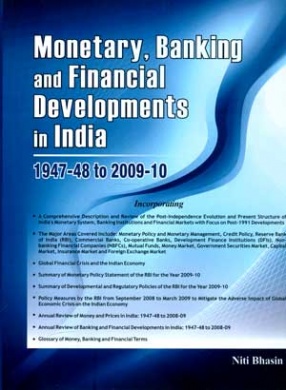
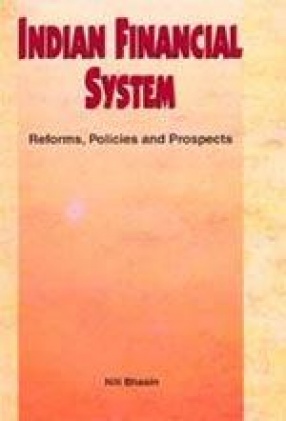
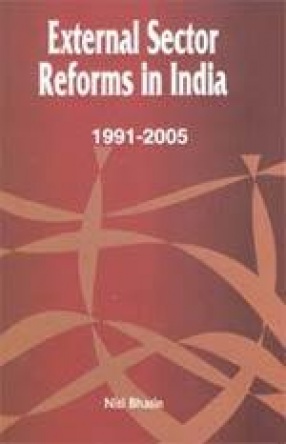
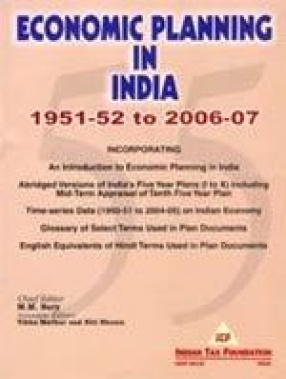
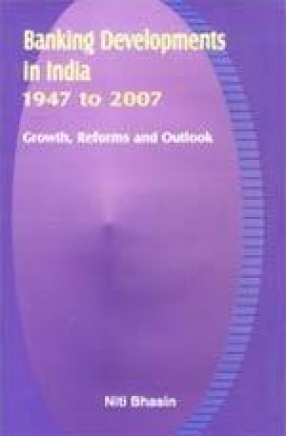


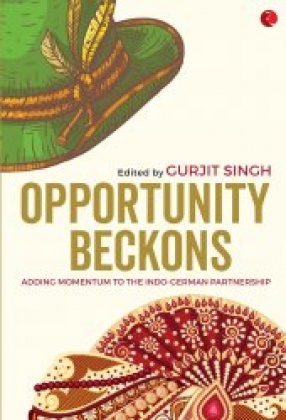


Bibliographic information